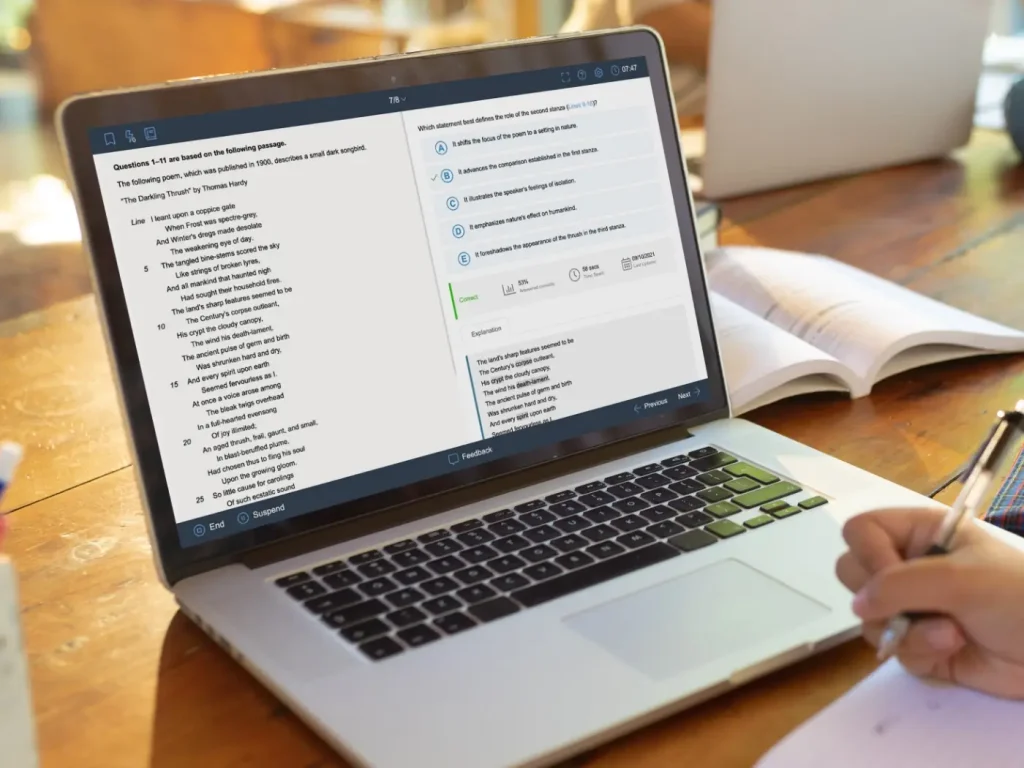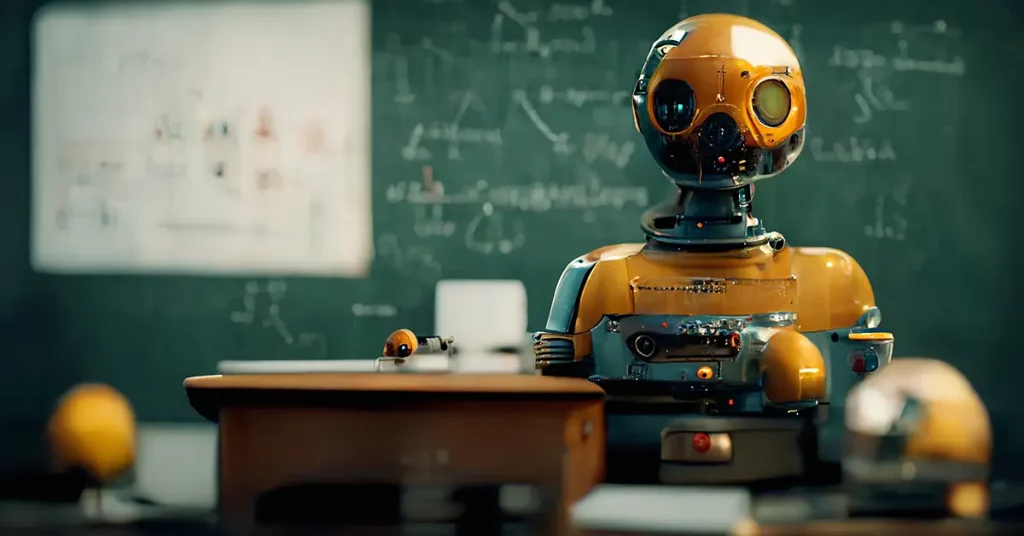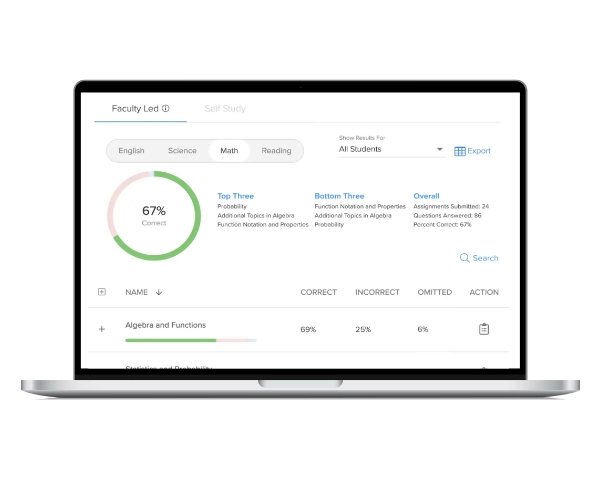It's 2:00 am, and although you know you have to be at school in just a few hours, you're sitting up in bed, unable to sleep. Your stomach churns and your palms feel clammy as you open a new Google search on your phone. You wonder why you're doing this–it won't make you feel any better. Anxiously, you type:
Will AI in schools destroy education?
AI technology, or artificial intelligence, has been a hot topic in the education sector for the past several years but has become a central point of debate in recent months. If you read educational journals or peruse teacher groups on social media, you're guaranteed to see discussions about it.
The concept of using machines and algorithms to assist with teaching and learning has been met with mixed reactions.
- Some high school educators are concerned about the negative impacts of AI on student learning and college readiness, such as the discouragement of critical thinking or the promotion of a one-size-fits-all approach to education.
- Teachers also worry about students using AI in schools to cheat on tests or assignments with the increasing availability of AI-powered writing tools.
- Many teachers fear that the integration of AI technology in education will replace the need for actual educators in the classroom.
Additionally, there is a gigantic elephant in the room that many educators worry about, but few are willing to openly discuss with their colleagues and see AI as a valuable tool that can enhance learning in a number of ways, such as by providing differentiated instruction and efficient data analysis. As AI technology continues to advance, it is important for educators to understand both the negative consequences and positive potential of using it. Doing so will help them make informed decisions about AI integration in the high school classroom.
How AI Technology is Used for High School Writing, Research, and Math
It’s common knowledge that artificial intelligence can do a lot of complex tasks–many people use it for writing, solving complicated math problems, and for quickly conducting research. Although AI tools do not always produce perfect results, they can be very useful for generating complete outlines, paragraphs, and full articles in a wide range of voices and lengths. These tools work because of AI’s machine learning algorithms and natural language processing. These scan the internet to “understand the text” and then form that information into output that best fits the writer’s request. Furthermore, AI-powered technology keeps evolving and developing in order to strengthen its ability to help users find relevant information on any given topic. The potential for AI to improve the efficiency and quality of written projects is endless.
Artificial intelligence doesn’t just help with written content, but also can create images and solve complex math problems. The capabilities of this technology go far beyond those of a basic calculator. The purpose of an optimization problem in calculus, for example, is to find the best solution among many possibilities. AI algorithms can do this in a matter of moments. Even difficult symbolic computations, such as differential equations and simplifying expressions, are no problem for AI technology. Additionally, AI can produce new mathematical models and recognize mathematical patterns simply by analyzing data. This opens the door to new mathematical insights and solutions.
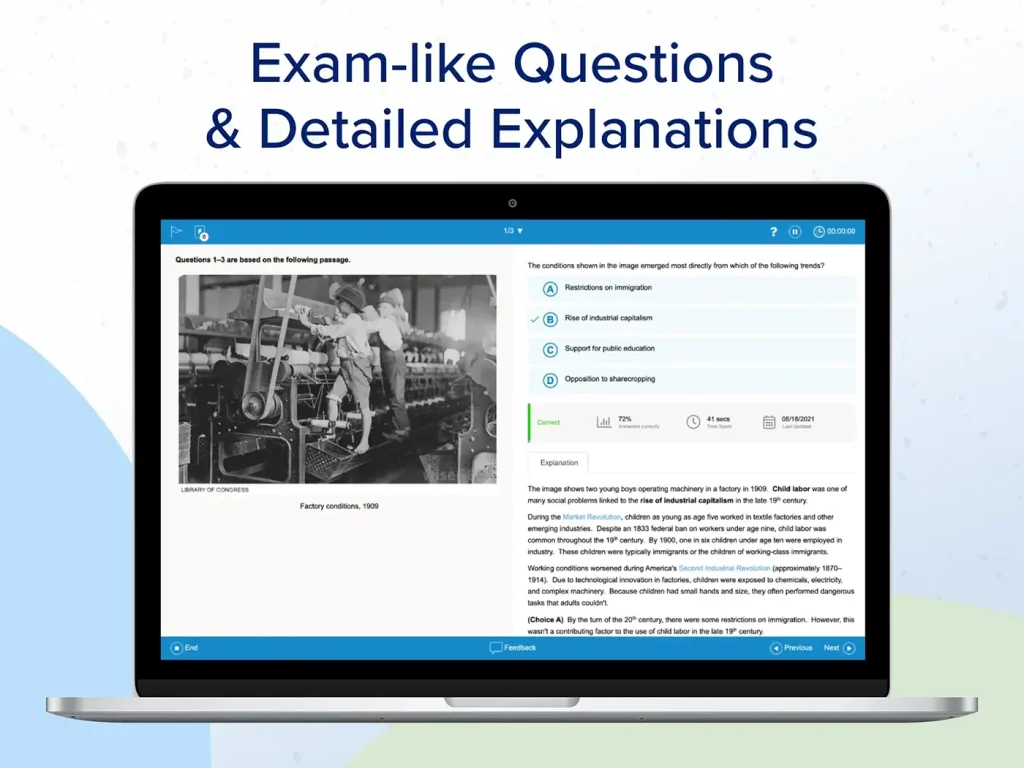
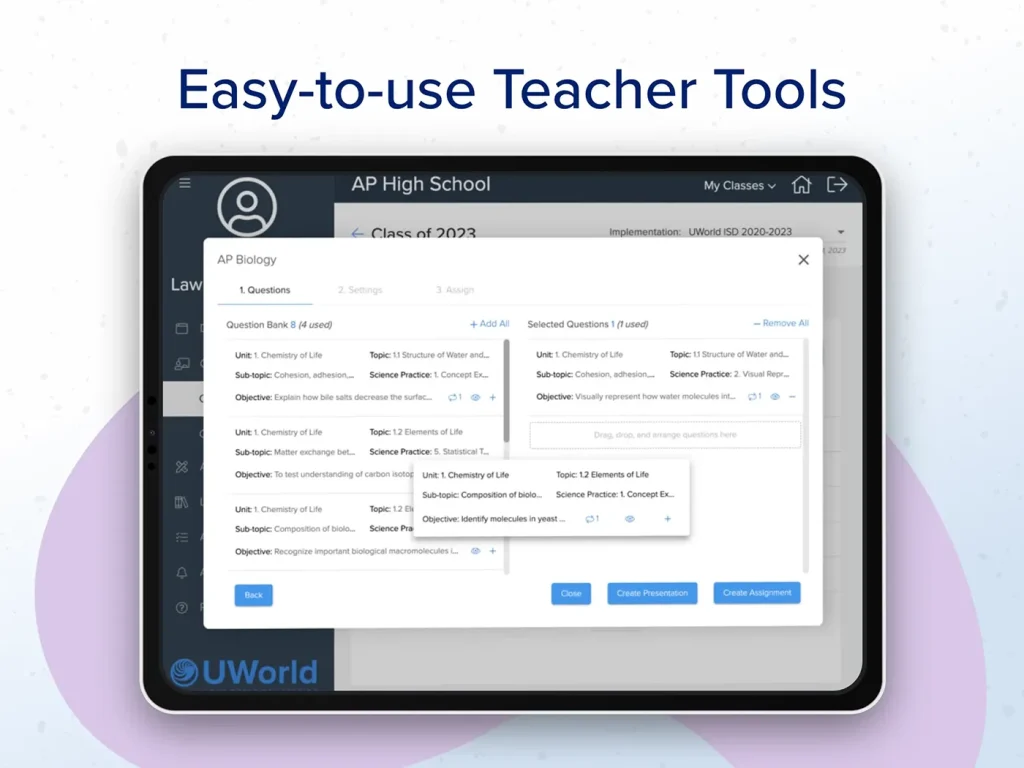
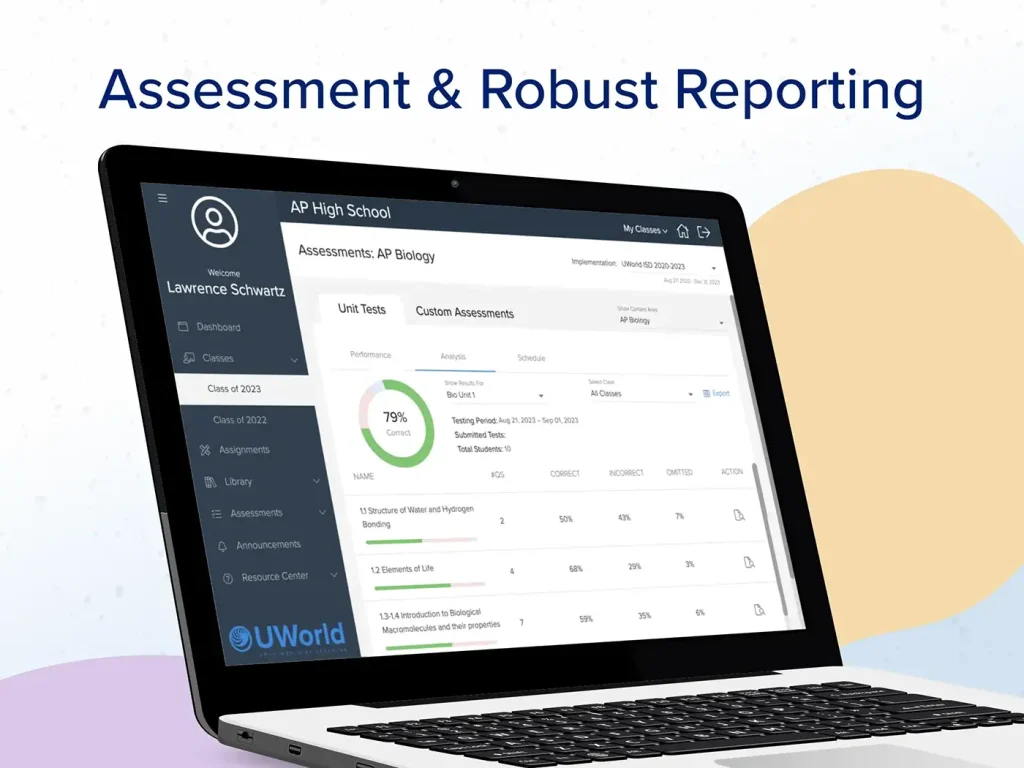
Concerns About AI Use in College Readiness
Many educators have raised concerns about the use of artificial intelligence when preparing students for college. This is by no means an exhaustive list, but it does include a few of the most common worries that are currently being discussed by educators.
Cheating on Tests and Assignments
As AI continues to improve, it’s understandable that high school educators would become increasingly concerned. After all, effectively teaching students greatly depends on accurate data from quizzes and assignments. If students use AI to cheat, that data will be inauthentic and unhelpful. ChatGPT and other AI-powered writing tools have made computer-generated essays appear to be written by humans, making it possible for students to pass off 100% AI-created papers as their own. Additionally, some students may use AI to answer test questions. This, of course, would further undermine the integrity of information the teacher could use to address learning misconceptions.
Loss of Creativity and Critical Thinking
Educators also worry that students who fully rely on AI tools may develop a lack of critical thinking skills and creativity. They believe that students who use AI too much will lose their ability to develop their own ideas and solutions. Rather than coming up with ready-made (computer-generated) answers to questions, teachers want their students to learn how to think critically and come up with their own ideas. Without these integral critical thinking skills, students may not develop the problem-solving skills necessary for success in their future careers.
Teachers Replaced by AI Technology
The thought of AI technology taking over the role of educators in the classroom has caused concern among many teachers. Although AI has made grading and providing feedback to students more efficient, it cannot replace the human element that teachers bring to education. Teachers offer emotional support, mentorship, and personalized learning experiences that artificial intelligence simply cannot replicate. Additionally, teachers are responsible for designing lessons, creating engaging activities, and promoting critical thinking skills. While AI technology may be able to assist in some aspects of education, it will never fully replace the role of a teacher. Take the example of offering students feedback on their assignments; teachers may use artificial intelligence to generate an initial critique of student work, but then they must look through that critique, add or remove anything that needs to be tweaked and track the student's progress. Without this step of human input, the teacher's feedback becomes as pointless as a fully AI-generated essay submission.
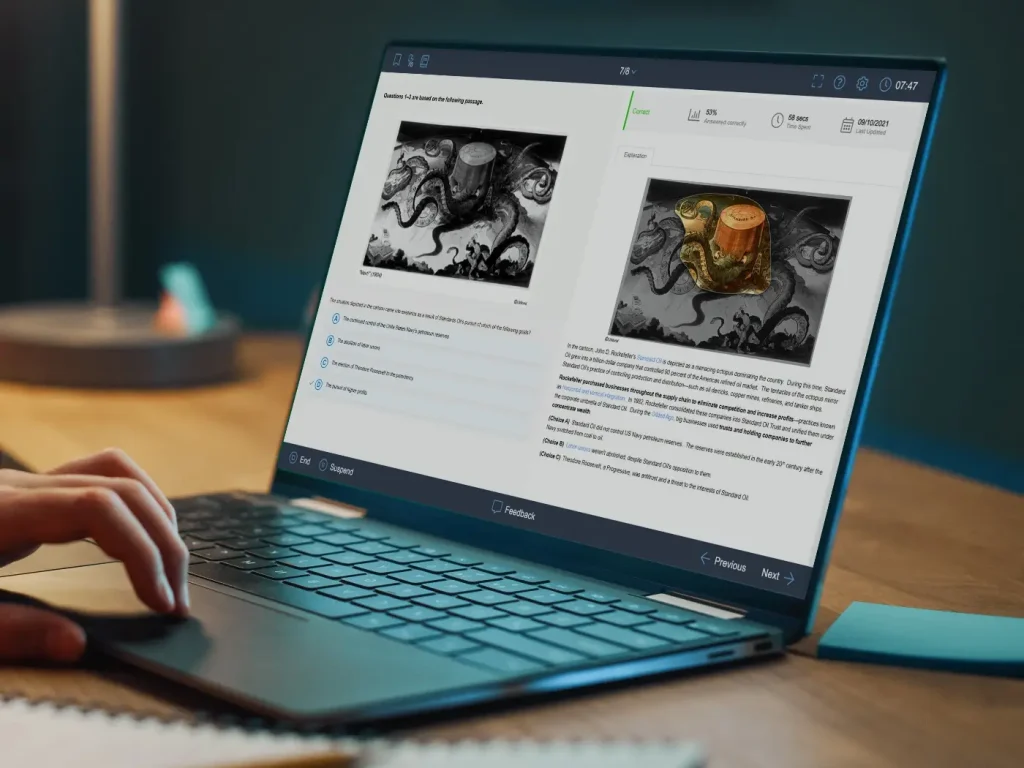
Although some school districts have blocked access to ChatGPT on their internal networks, this has not prevented students from using the tool at home. With the rise of remote learning, high schoolers are increasingly turning to AI-powered platforms like ChatGPT to help with their studies and assignments. Despite being blocked by some school districts, AI continues to be a valuable resource for many teachers, too. Some liken the controversy behind AI technology to the fear many people once had about allowing students to use calculators in school. Artificial intelligence may have a greater potential for task completion than a typical calculator, but it is still just a tool (albeit one the public is currently learning how to use). Concerns over AI technology are certainly valid, but those concerns won't make it disappear. Rather, the concerns educators have over artificial intelligence highlight the importance of understanding how to balance the benefits of new technology with the need for responsible usage and monitoring.
Overcoming AI Technology Fears
People fear what they don't understand, so the best way to assuage any fear of AI in education is to familiarize educators with it. Administrators can prepare for AI integration in schools by learning about the technology, exploring its potential uses, and considering its ethical implications.
Teachers can
- educate students on the proper use of AI technology by modeling ethical and responsible behavior, teaching digital citizenship, and demonstrating how AI can assist with their learning
- encourage students to evaluate the accuracy of AI results, just as they are taught to evaluate the credibility of other informational resources
- encourage critical thinking skills with AI by posing open-ended questions, asking students to analyze and evaluate information, and promoting diverse perspectives
- facilitate group discussions on real-world problems, challenging their students to consider multiple solutions
In terms of cheating, educators can determine
- if a student's submission is fully AI-generated by looking for patterns in writing style, content, and language usage
- use plagiarism detection tools to check for originality or analyze the submission using AI models to verify if it was generated by a machine
- ask students questions to gauge their understanding of the material and see if the answers match the content of the submission
By integrating AI technology as just one tool in a larger critical thinking process, educators can ensure students develop the skills necessary to make informed decisions in an increasingly technology-driven world.
Possibilities for AI in Education
For as many concerns as there are about artificial intelligence in education, there are just as many–if not more–potential benefits. The possibilities are greater than what can fit in just one blog post, but here are a few:
- Personalized learning: AI can analyze student data and create individualized study plans.
- Automated grading and initial feedback: AI can grade assignments and provide initial feedback that teachers can build upon and track for student progress.
- Intelligent tutoring: AI can provide real-time, personalized tutoring. This can be especially helpful for closing learning gaps, or when a teacher is working with small groups of students while others work independently.
- Interactive simulations: AI can provide engaging and educational learning experiences.
- Improved accessibility: AI can make education more accessible to students with disabilities by catering to learning accommodations.
Teachers can support students by personalizing interventions for different learning preferences with AI, and also by providing them with real-time feedback. Artificial intelligence can gamify lessons by incorporating interactive elements, such as adaptive learning and gamified exit tickets. Additionally, AI-powered virtual tutors can offer 24/7 support, allowing students to ask questions and receive immediate feedback at any time. To effectively use AI, educators should seek training on it and regularly assess its impact on student learning.
If You Can't Beat It, Join It: AI Technology and the Future of College Readiness
The concept of artificial intelligence can be a little scary for some people. It's hard not to worry as you sit beside your aunt over the holidays while she insists you're going to lose your career to computers. But AI technology is not going away, so there are only three ways to approach it: cross your fingers and hope it will faze out (it won't), lose sleep while worrying over it (a waste of time), or do what you do best, and when everyone else is fretting about how educators can possibly take on this new technology, look them in the eye and say, "Watch me."
Perhaps artificial intelligence in education will raise the baseline of expectations for student work and the passing level of assignments. Assignment submissions in a computer-generated content era will certainly need to demonstrate critical thinking skills and personal connections to learning. AI might be able to fake personal experience, but it will never be able to truly replicate it. In essence, AI's only job is to pick out pieces of other people's experiences and formulate them in a way it deems relevant. Just as most people can tell the difference between machine-made cookies from the snack aisle of the grocery store and a grandparent's homemade ones baked "with love," most people can tell the difference between a real human experience and an AI-generated one.
Still not sure? For this blog post, I asked ChatGPT a question that many educators have answered throughout their careers, then proceeded to answer it, myself. Both responses are included below:
In 100 words, write a first-hand experience about a time when, as an educator, you made a difference in a student's life:
"One of the most rewarding experiences as an educator is making a positive impact in a student's life. I recall a student who had struggled with self-confidence and motivation in the classroom. I took the time to build a rapport with this student and found ways to make the subject matter more engaging and relatable. Over time, I saw a noticeable improvement in the student's attitude and performance. The student's grades improved, and their confidence grew, leading to a newfound love for learning. Seeing the transformation in this student was a proud moment for me and reinforced the importance of the role educators play in shaping the lives of their students."
"During the 2019-2020 school year, I had a student who was convinced he couldn't write. After working with him for some time, it became clear to me he needed accommodations for dysgraphia. With the proper writing support and a ton of encouragement, this student began to gain confidence in his ability to write and created the most wonderful stories. Years later, his mom reached out to me, saying he'd just found out that a poem of his had been selected to be published in a book of poetry. She said he'd specifically wanted to thank me for believing in him because now he could believe in himself. That meant more to me than any test score could."
You tell me… Which response is real?
By the time students enter the workforce, understanding how to use artificial intelligence may very well be an expectation–and if we're being honest, part of helping students with college readiness is teaching them how to effectively and ethically use current technology, and that includes AI.
Key Takeaways
Artificial intelligence is an exciting tool with many wonderful possibilities for education. It’s unlikely that it will replace teachers or destroy the need for critical thinking skills, but it can certainly have a great impact on the educational sector as a whole.
